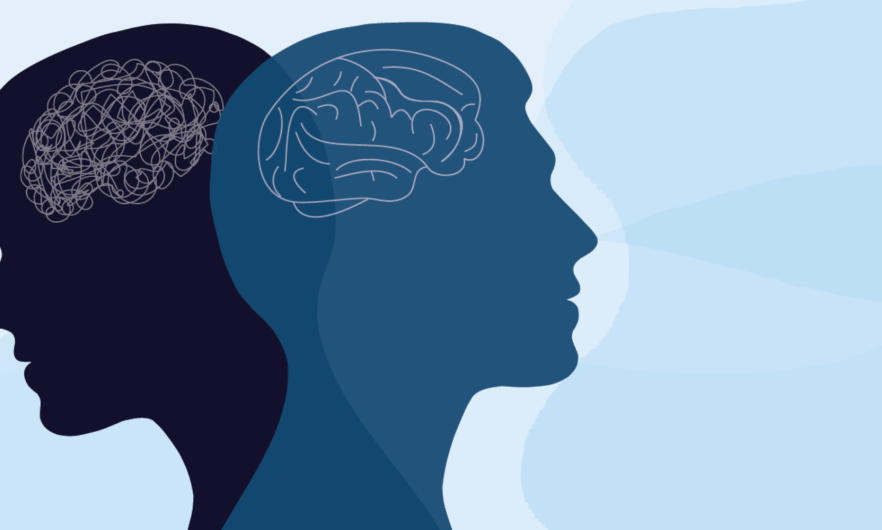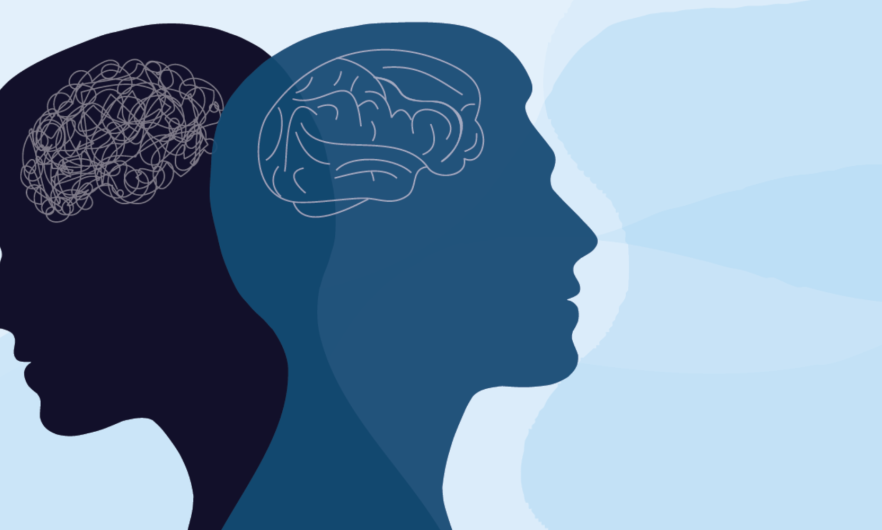Understanding the Connection Between Exercise and Mental Well-being
by AnwarAzam

In the fast-paced world we live in, mental health is becoming an increasingly important aspect of overall well-being. As we navigate the challenges of everyday life, it’s crucial to explore holistic approaches to maintaining mental health. One such approach that has gained significant attention is the connection between exercise and mental well-being.

The Power of Physical Activity
Exercise is often associated with physical health, but its impact on mental health is equally profound. Numerous studies have shown that engaging in regular physical activity can have positive effects on mood, stress levels, and overall mental well-being.
Release of Endorphins
When you engage in exercise, your body releases endorphins, commonly known as “feel-good” hormones. These chemicals act as natural painkillers and mood elevators, reducing stress and anxiety. Whether it’s a brisk walk, a session at the gym, or a yoga class, the release of endorphins can contribute to an immediate improvement in your mood.
Reduction of Stress and Anxiety
Stress and anxiety are prevalent in today’s society, but exercise can be a powerful antidote. Physical activity helps your body to better cope with stress by reducing levels of cortisol, a stress hormone. Additionally, exercise provides a distraction from daily worries, allowing your mind to focus on the present moment.
Improved Sleep Quality
Quality sleep is essential for mental health, and exercise plays a key role in promoting restful sleep. Regular physical activity helps regulate sleep patterns, making it easier to fall asleep and stay asleep throughout the night. Adequate rest is crucial for cognitive function, emotional well-being, and overall mental resilience.
Enhanced Cognitive Function
Exercise doesn’t just benefit the body; it also has a positive impact on cognitive function. Regular physical activity has been linked to improved memory, attention span, and overall mental sharpness. The increased blood flow to the brain during exercise delivers essential nutrients and oxygen, supporting optimal brain function.
Social Interaction and Support
Many forms of exercise involve social interaction, whether it’s joining a fitness class, participating in group sports, or simply taking a walk with a friend. Social connections are vital for mental health, providing a sense of belonging and support. Engaging in physical activities with others can foster a supportive community, reducing feelings of loneliness and isolation.
Setting and Achieving Goals
Establishing and achieving fitness goals can have a positive impact on mental well-being. Whether it’s completing a certain number of steps per day, running a specific distance, or mastering a yoga pose, setting and reaching fitness milestones can boost self-esteem and confidence. This sense of accomplishment transcends into other areas of life, contributing to an overall positive mindset.
Incorporating Exercise into Daily Life
Incorporating exercise into your daily routine doesn’t necessarily mean committing to intense workouts. Simple activities like taking the stairs instead of the elevator, walking during breaks, or practicing mindfulness through activities like tai chi or yoga can make a significant difference.
Seeking Professional Guidance
Before starting any new exercise routine, especially for individuals with pre-existing health conditions, it’s advisable to consult with a healthcare professional or a qualified fitness expert. They can provide personalized recommendations based on individual health needs and goals.
Conclusion
The connection between exercise and mental well-being is a powerful one, with numerous benefits for both the body and the mind. By incorporating regular physical activity into your routine, you can positively impact your mood, reduce stress and anxiety, improve sleep quality, enhance cognitive function, and build a supportive social network. Remember, the journey to better mental health is unique for each individual, and finding activities that bring joy and fulfillment is key. So, lace up those sneakers, find an activity you love, and take a step towards a healthier, happier mind.
In the fast-paced world we live in, mental health is becoming an increasingly important aspect of overall well-being. As we navigate the challenges of everyday life, it’s crucial to explore holistic approaches to maintaining mental health. One such approach that has gained significant attention is the connection between exercise and mental well-being. The Power of…
right Sidebar
